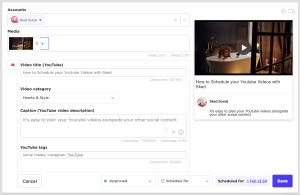The field of SEO is constantly changing and evolving. Algorithms get updated, search patterns get more sophisticated, and the marketplace gets more crowded with competitors. It’s a tough landscape, and one that requires a keen attention to both strategic planning and tactical action. With so many considerations to juggle, it’s easy to lose focus over time.
If you have seen a plateau (or worse, a drop) in organic search traffic despite sticking to SEO best practices here are three key issues to consider to ensure your pages are as effective as they can be.
Avoid Content Cannibalism
If you have been creating blog posts, white papers, landing pages and other resources on your site for a long time there is the possibility that your efforts are being diluted across too much similar content.
Let’s say you offer computer repair services and have been blogging about this topic for a year. Too many posts centered around the same keyword can reduce the overall “novelty score” of your content- an element of Google’s algorithm that examines the uniqueness of information shared on a page.
There is also the risk that some of your new, fresh blog posts are (unintentionally) similar enough to older posts that they could be seen as duplicate content – something which can result in a severe penalty.
TIP: Keeping track of all existing content with a spreadsheet can help you to avoid these issues and stay focused on creating fresh content that strengthens rather than dilutes your efforts.
Increase the Value of Your Content
Over the past two years search engines have upped their game considerably. They are able to look beyond keywords and judge the merit of your content based on context and popularity. No matter how well your content is optimized for a keyword, if it lacks depth and originality it won’t be beneficial for either your SEO efforts or your readers.
Each piece of content on your website should have a specific purpose. Does it help your visitors to solve a problem? Does it offer insight and educational information? Is it well written and comprehensive?
Your content should offer readers something which the reader can’t find anywhere else on the web, or at least, can’t find it in such a well-written, clear or extensive format.
TIP: Consider adding unique resources such as checklists, quizzes or charts to enhance your content.
Focus More on Conversion than SEO
At the end of the day attracting hundreds of people from organic search is pointless if they read your content and then leave without entering your sales or marketing funnel.
Each piece of content should have a purpose that ties in with your overall business goals for your website. There is a delicate balance to be struck between compromising great SEO content with promotional copy, but each page should at least include links to other internal pages that are more sales oriented.
TIP: Include at least one call to action that entices visitors to subscribe to your newsletter, submit an enquiry or other desirable action.
As well as helping to grow your business, considering how you want a visitor to interact with your content tends to result in improving the “stickiness” of your site, reducing bounce rate, improving the average time a visitor stays on your site and encouraging repeat traffic. All of these are elements that often correlate closely with search engine rankings.
Auditing all of the content on your site can be a daunting prospect, but it is an exercise that can jump start stale SEO results significantly enough to make it one worth investing the time and effort to undertake.
Digital & Social Articles on Business 2 Community(111)
Report Post






